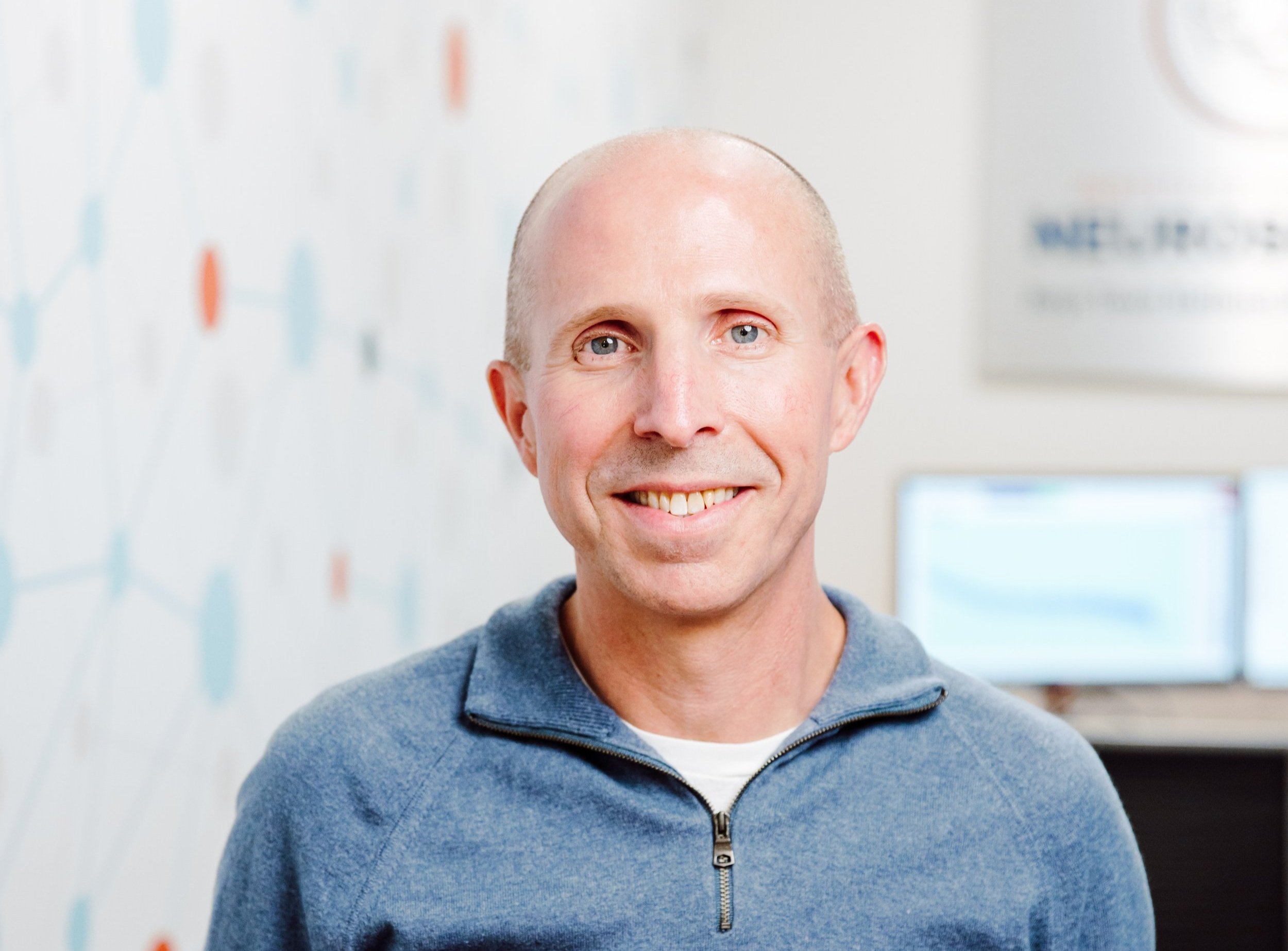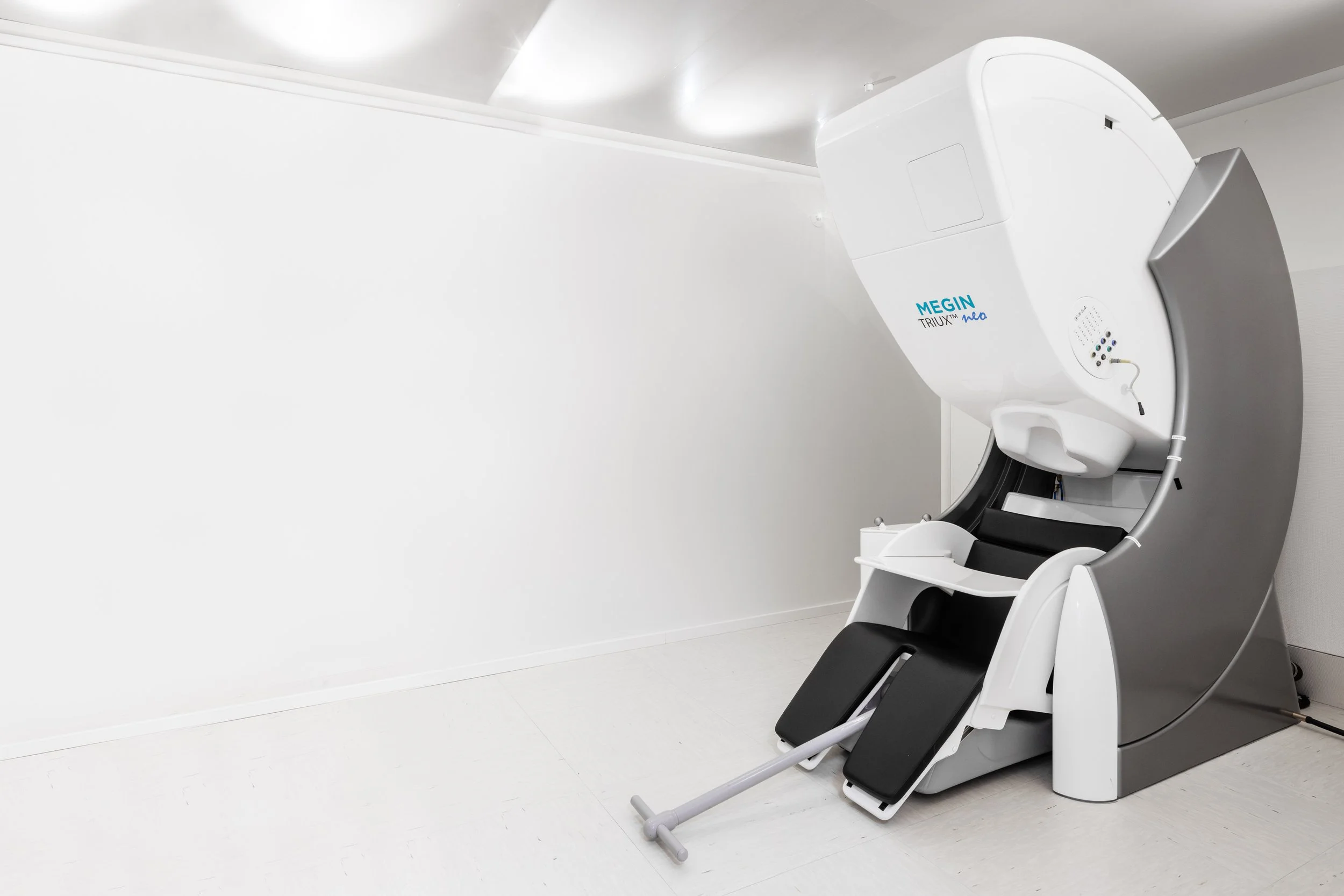
CENTER FOR PEDIATRIC
BRAIN HEALTH
The Institute for Human Neuroscience is home to the Center for Pediatric Brain Health (CPBH), an NIH Center of Biomedical Research Excellence (COBRE). NIH COBREs support the establishment and development of innovative, state-of-the-art biomedical and behavioral research centers at institutions through awards for three sequential five-year phases. The CPBH is currently in its first phase of funding, which began in 2022.
The Center for Pediatric Brain Health aims to expand developmental neuroimaging research and promote pediatric brain health. In order to achieve these aims, the CPBH supports major research projects, pilot projects, mini-grants, postdoctoral training positions, an annual summer scholars program, a monthly seminar series, a monthly career development series, skills workshops, and various outreach programs. The CPBH is broadly organized into an Administrative Core, an Imaging Core, and Research Projects.
CPBH ADMINISTRATIVE CORE
Core Directors: Dr. Tony Wilson & Dr. Max Kurz
The overall goal of the Administrative Core is to lead, implement, and support the CPBH’s primary program activities. The Administrative Core has a series of integrated programs to support research project leaders and the pediatric neuroscience community overall. These programs provide mentoring and equip investigators with solid research support structures that include a state-of-the art imaging core, a participant registry to facilitate recruitment, internships and fellowships, pilot project funding ($100,000 per year), scientific seminar series, career development seminars, in-depth neuroimaging methods workshops, and community outreach initiatives. These are offered to undergraduate and graduate students, postdoctoral fellows, junior faculty, and transitioning senior scientists. The Administrative Core also has a supervisory & mentoring committee made up of nine highly experienced mentors who provide career and project guidance to research project leaders and pilot project leaders within the CPBH.
CPBH IMAGING CORE
Core Director: Dr. Tony Wilson
The Imaging Core provides direct access to state-of-the-art instrumentation including two MEGIN Neo MEG systems (the most advanced MEG instrument available worldwide with a 306-sensor array), a 3-Tesla Siemens Prisma MRI Scanner, and a high-density Cerca Magnetics OPM-MEG (optically pumped magnetometer). The Imaging Core houses the latest tools for neuromodulatory research, including one of the few 65-lead transcranial electrical stimulation systems (tES) in existence, a standard two-pad (tES) system, a five-lead multipolar high-definition tES system (HD-tES), and a MxN-33 lead tES system. The Imaging Core also provides access to behavioral testing suites, high-performance computing infrastructure, and the analytical expertise necessary to develop rigorous experiments, analyze the resulting neural data using cutting-edge methods (e.g., multimodal fusion, dynamic functional connectivity), and merge neuroimaging and cognitive assessment data using the latest approaches and statistical models. In addition to the equipment itself, the Imaging Core provides support in the form of skilled staff members to operate these machines.
CPBH RESEARCH PROJECT: DR. TAYLOR
Research Project Leader: Dr. Brittany Taylor
Cognitive, Immunological, and Neurophysiological Consequences of Home Radon Exposure in Children and Adolescents
The overarching goal of Dr. Taylor’s study is to better understand the impact of home radon exposure on structural and functional brain development in children and adolescents. Radon is a naturally-occurring, carcinogenic gas that exists in persistently high concentrations within homes in the local area (eastern Nebraska and western Iowa). Chronic radon exposure is known to increase inflammation throughout the body, including increases in cytokines implicated in neuroinflammation. However, little is known about the degree to which this radon exposure and resultant inflammation may be impacting brain and cognitive development in youths. In this project, Dr. Taylor and her team will address this critical gap in knowledge and explore how a common environmental toxin impacts trajectories of neurocognitive development in a multimodal neuroimaging study. The outcomes of this study have the potential to shape the future of public health policy surrounding radon awareness and mitigation efforts, and this is especially true in the surrounding region where home radon levels are some of the highest in the nation.
CPBH RESEARCH PROJECT: DR. DOUCET
Research Project Leader: Dr. Gaelle Doucet
Developmental Changes in the Reconfiguration of Brain Networks and Their Association with Psychiatric Traits During Adolescence
Adolescence is a key period for neural changes, including maturation of the brain's cognitive networks. This period is also associated with increased vulnerability to psychopathology. The aim of Dr. Doucet’s project is to combine brain functional imaging data with cognitive and behavioral information in adolescents to provide an integrative framework that quantifies the dynamic reconfiguration of the brain connectome across cognitive states from adolescence to adulthood. This will help to improve our understanding of the link between the brain functional connectome and psychopathology in adolescents. By mapping the brain functional connectome during this critical age window, this work has the potential to provide a transdiagnostic framework for linking mental health disorders to brain mechanisms involved in the maturation of brain networks.
CPBH RESEARCH PROJECT: DR. HEINRICHS-GRAHAM
Research Project Leader: Dr. Elizabeth Heinrichs-Graham
Characterizing the Impact of Auditory Experience on Language, Cognitive, and Neural Development in Children
The overall goal of this study is to determine the impact of hearing loss on verbal and nonverbal cognitive development in children using an advanced, multimodal imaging approach. Dr. Heinrichs-Graham and her team will identify the effects of hearing loss on the neural dynamics serving higher order cognition and determine how these changes impact language development. They will also investigate how hearing intervention parameters mediate the relationships between cognitive, language, and brain function in children with hearing loss. This research has the potential to dramatically shift the field's understanding of cognitive and language dysfunction in hearing loss, which would significantly impact our approach to therapeutic and academic interventions.
CPBH RESEARCH PROJECT: DR. PICCI
Research Project Leader: Dr. Giorgia Picci
Biological Embedding of Dimensional Adversity: Developmental Pathways Toward Psychopathology
Early life adversity is a pervasive impediment to healthy brain development and mental health across the lifespan. Yet, there is a lack of specificity in how specific features of child adversity experiences propagate particular patterns of neurodevelopment and mental health symptoms. Thus, Dr. Picci’s lab is focused on using a dimensional adversity approach to probe the biological sequalae that initiate and propel adversity-related neurodevelopmental cascades. Pubertal development, specifically, has been highlighted as a candidate biological process that is both sensitive to early adversity and occurs in a uniquely plastic developmental window. How specific dimensions of adversity (e.g., unpredictability) modulate pubertal development continues to be weakly characterized. In this project, Dr. Picci and her team are using state-of-the-art pubertal assays and advanced neuroimaging techniques to identify how dimensional aspects of adversity affect the pubertal transition and neurodevelopment. Given that pubertal development is a highly malleable time, this project has the potential to yield insights on novel targets for intervention that could promote healthy neurodevelopmental trajectories following childhood adversity.







